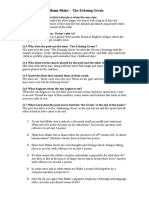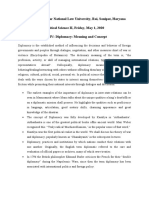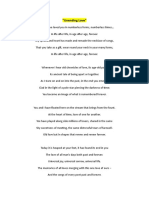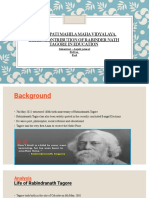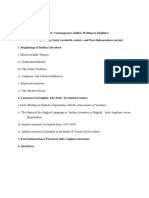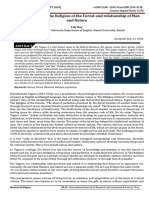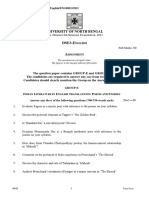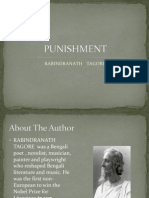100% found this document useful (1 vote)
3K views5 pagesEnglish Date: 08 June 2020
The document summarizes Rabindranath Tagore's short story "The Postmaster". It describes how a postmaster is transferred to a remote village in India from Calcutta. He struggles to adjust to village life and finds companionship in Ratan, an orphan girl. They develop a close bond over their evenings spent together. When the postmaster's request to transfer back is denied, he resigns, deeply upsetting Ratan. She asks to go with him but he refuses, leaving her heartbroken. The story explores themes of loneliness, friendship and the difficulties of adjusting to new environments.
Uploaded by
Gamer JiCopyright
© © All Rights Reserved
We take content rights seriously. If you suspect this is your content, claim it here.
Available Formats
Download as PDF, TXT or read online on Scribd
100% found this document useful (1 vote)
3K views5 pagesEnglish Date: 08 June 2020
The document summarizes Rabindranath Tagore's short story "The Postmaster". It describes how a postmaster is transferred to a remote village in India from Calcutta. He struggles to adjust to village life and finds companionship in Ratan, an orphan girl. They develop a close bond over their evenings spent together. When the postmaster's request to transfer back is denied, he resigns, deeply upsetting Ratan. She asks to go with him but he refuses, leaving her heartbroken. The story explores themes of loneliness, friendship and the difficulties of adjusting to new environments.
Uploaded by
Gamer JiCopyright
© © All Rights Reserved
We take content rights seriously. If you suspect this is your content, claim it here.
Available Formats
Download as PDF, TXT or read online on Scribd
/ 5





















